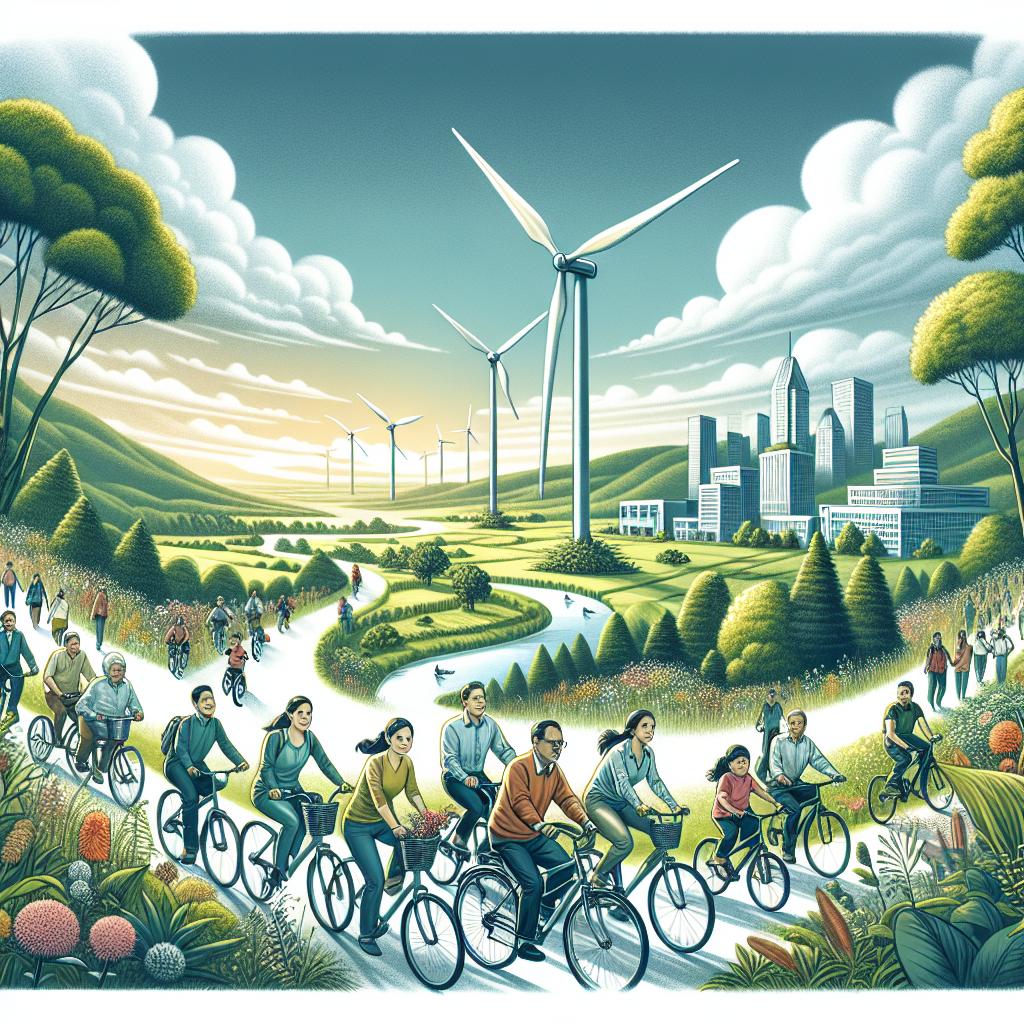Revolutionizing Business

As the world becomes increasingly conscious of the urgent need to address environmental challenges, corporations are stepping up to the plate to lead the charge towards a more sustainable future. From sustainable production and consumption to green transportation, wildlife protection, and renewable energy, trailblazing companies are demonstrating that profitability and social responsibility can coexist.
Sustainable Production and Consumption: Redefining the Business Model
The concept of sustainable production and consumption has gained significant traction in recent years, with corporations recognizing the importance of reducing waste and minimizing their environmental impact. Leading companies, such as Patagonia and Interface, have made it their mission to create products using only renewable or recycled materials, while implementing closed-loop systems that reduce waste and the need for virgin resources. By prioritizing sustainability, these companies not only reduce their carbon footprint but also enhance their brand reputation.
Green Transportation: Electric Vehicles and Beyond
Transportation is a significant contributor to global carbon emissions, making it a crucial area for improvement. Forward-thinking corporations, including Tesla and Google, are leading the charge towards a greener transportation future. Through the adoption of electric vehicles (EVs) and the expansion of charging infrastructure, these companies are demonstrating that a cleaner transportation system is not only possible but also profitable. Additionally, some corporations are exploring alternative transportation methods, such as bike-sharing programs and public transportation subsidies, to further reduce their carbon footprint.
Corporate Social Responsibility: Doing Well by Doing Good
Corporate social responsibility (CSR) has become a critical component of modern business strategy. Companies, such as Unilever and Ben & Jerry's, are demonstrating that it is possible to achieve both financial success and positive social impact. By investing in community development projects, reducing waste, and implementing fair labor practices, these corporations are not only improving their public image but also creating long-term value for their stakeholders. Furthermore, CSR initiatives can lead to cost savings, as companies streamline their operations and reduce waste.
Wildlife Protection: Business and Conservation
As deforestation continues to threaten wildlife habitats and contribute to climate change, corporations have a crucial role to play in conservation efforts. Companies such as Procter & Gamble and Walmart have made significant strides in reducing their reliance on palm oil, an ingredient that has led to significant deforestation. Additionally, corporations are investing in reforestation projects and implementing sustainable sourcing practices to minimize their impact on natural habitats. Through these initiatives, corporations can not only reduce their carbon footprint but also contribute to the preservation of valuable ecosystems and the protection of endangered species.
Renewable Energy: Wind Energy and Beyond
The shift towards renewable energy sources, such as wind energy, is critical in the fight against climate change. Corporations, such as Microsoft and Amazon, are leading the way by investing in wind farms and implementing renewable energy strategies. By powering their operations with clean energy, these companies not only reduce their carbon footprint but also demonstrate their commitment to sustainability. Additionally, renewable energy investments can lead to cost savings, as the price of renewable energy continues to decline.
Carbon Footprint: Measuring and Reducing
Measuring and reducing a corporation's carbon footprint is an essential component of a sustainable business model. Companies, such as Cisco and Google, have set ambitious targets for reducing their carbon emissions and are implementing a variety of strategies to achieve these goals. Through the adoption of renewable energy, the implementation of energy-efficient practices, and the reduction of waste, these corporations are demonstrating that a significant reduction in carbon emissions is possible and profitable.
Deforestation: Combating the Crisis
Deforestation is a pressing environmental issue with significant social and economic consequences. Corporations, such as Starbucks and Walmart, are taking a stand against deforestation by implementing sustainable sourcing practices and investing in reforestation projects. By reducing their reliance on palm oil and other deforestation-driven commodities, these corporations are contributing to the preservation of valuable ecosystems and the protection of endangered species.
In conclusion, forward-thinking corporations are leading the way in the fight against climate change and the protection of natural habitats. Through the adoption of sustainable production and consumption practices, the implementation of green transportation strategies, the promotion of corporate social responsibility, the investment in renewable energy, and the reduction of carbon footprints, these companies are demonstrating that a profitable and sustainable business model is not only possible but essential for our future.




